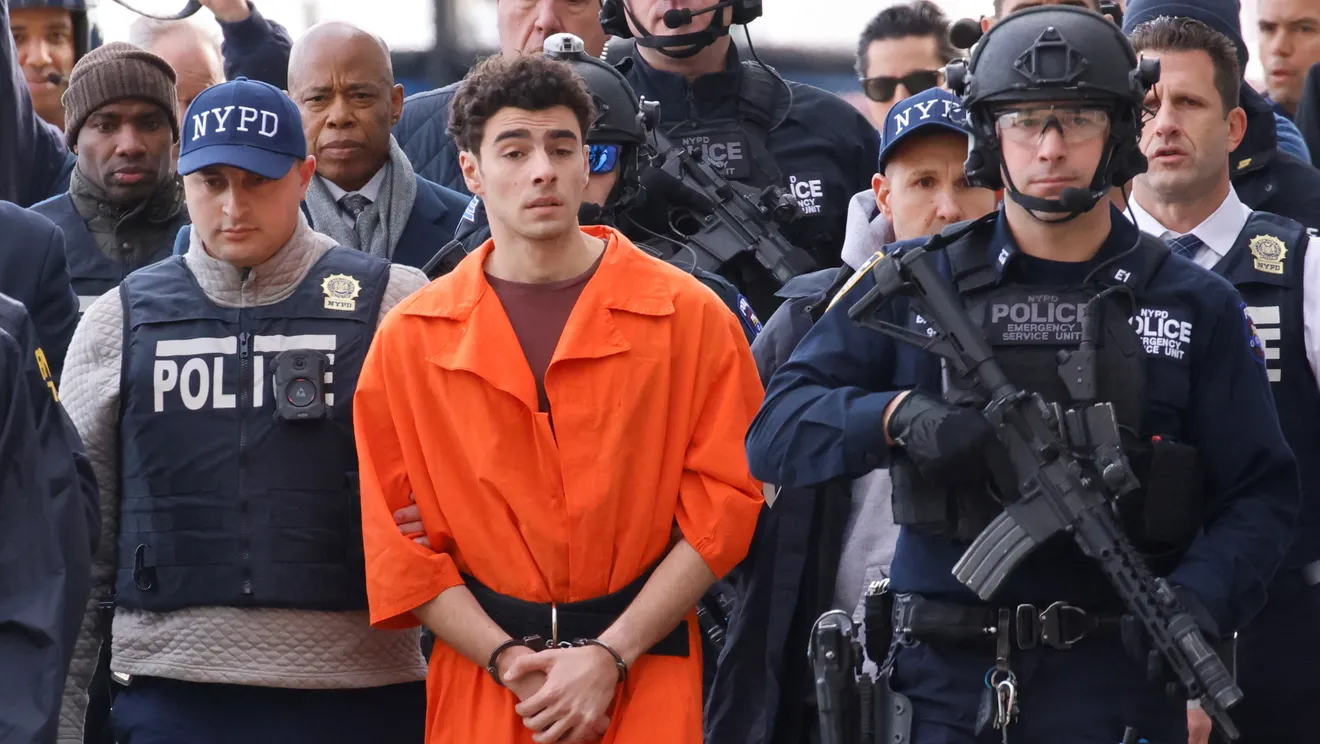The facts of the case.
On the morning of December 4, Mangione rode a bicycle from the Upper West Side to West 54th Street near Sixth Avenue, where he positioned himself between two cars. When Thompson walked by, Mangione approached him from behind and fired several shots from a 9mm pistol with a suppressor. After the shooting, Mangione fled the scene on his bicycle, heading north through Central Park before returning to the Upper West Side.
Mangione was arrested five days later on December 9, in Altoona, Pennsylvania, after being recognized from photos in the news while eating breakfast at a McDonald’s. The Altoona Police confronted Mangione, who provided the same false identification he had used in New York City. A search of his belongings revealed a 9mm pistol and a suppressor consistent with the weapon used in the murder. Ballistics testing conducted by the NYPD has apparently confirmed that the weapon found with Mangione was the one used in the attack. A notebook found with Mangione also provided incriminating evidence.
Mangione was extradited from Pennsylvania to New York where he was indicted for murder.
The state case against Mangione.
Under New York law, Mangione was indicted for 1st degree murder under the theory that the killing was an act of terrorism. This may be difficult to prove. Even if it can be proved he targeted his victim due to an ideological belief, under New York law § 490.05, it would have to be shown that he did it to “intimidate or coerce a civilian population.” If jury does not believe beyond a reasonable doubt that this was an act of terrorism, the crime would be 2nd degree murder. This is because, aside from a terrorist killing, New York reserves 1st degree murder for the killing of public officials, multiple victims, conspiracy to kill, silencing a witness, and other circumstances that the facts of Mangione’s case do not meet.
The penalty for 2nd degree murder is up to life in prison, but could be as little as a determinate sentence of 15 years. New York does not have a death penalty.
The federal case against Mangione.
- 1 count of using a firearm to commit murder, which carries a maximum potential sentence of death or life in prison;
- 1 count of interstate stalking resulting in death, which carries a maximum potential sentence of life in prison;
- 1 count of stalking through use of interstate facilities resulting in death, which carries a maximum potential sentence of life in prison;
- 1 count of discharging a firearm that was equipped with a silencer in furtherance of a crime of violence, which carries a maximum potential sentence of life in prison and a mandatory minimum sentence of 30 years.
How were the feds able to take Mangione into their custody when he was already in New York’s custody?
Under the U.S. Constitution, federal law generally pre-empts state law, giving the feds the right to seize him from state custody. Any legal or political questions about this were pretty much answered by the American civil war. New York state may still try Mangione for murder, however, but will have to wait for the federal case against him to resolve, or work out a deal with the feds on how to proceed. Although the New York District Attorney has stated that the state prosecution will proceed in parallel with the federal prosecution, that would be unusual.
Federal prosecutors may allow the state case to proceed first since Mangione’s capture was a joint venture of the NYPD and FBI and prosecutors have expressed a desire to do so. But if the federal trial goes first, NY will likely not prosecute because Mangione’s federal conviction will carry a much steeper penalty than anything he could receive in state court. And although the killing happened in New York, the victim not a New York resident.
What about double jeopardy?
Double jeopardy is a 5th Amendment right, but only applies to being tried twice for the same crime under the same laws. The United States and New York state not only have their own laws, but are considered distinct sovereignties. Therefore, both trials may proceed against Mangione without violating his 5th Amendment right against double jeopardy. Although there’s nothing about that in the Constitution, this issue has been litigated, and most recently been upheld by the Supreme Court in Gamble v. U.S. (2019) 587 U.S. 678
Why did the feds decide to charge Mangione?
The F.B.I. investigated the crime along with the NYPD since Mangione also violated federal law. Federal prosecutors are certainly aware of N.Y. law and its limitations, and the inability of N.Y. prosecutors to hold Mangione accountable for all he did in the planning and commission of the murder.

